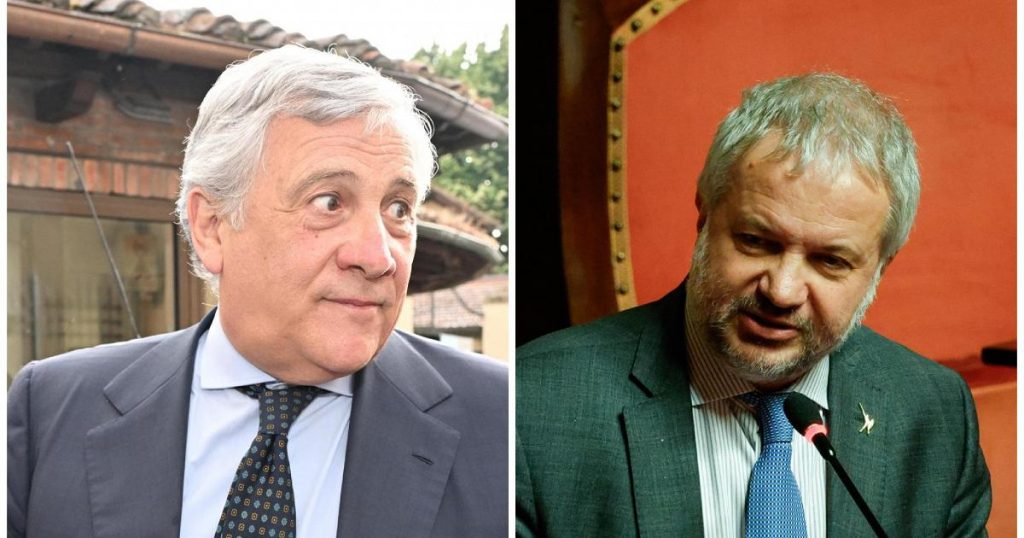The tensions between Forza Italia and Lega have been heightened by discussions surrounding the European flag, with both parties fairly even in pre-European election polls at around 7-9% each. This controversy began with the candidate strongly supported by Matteo Salvini, Roberto Vannacci, who criticized the EU flag’s design during an interview. Claudio Borghi, another Lega candidate, also proposed a bill to remove the European flag from public buildings to emphasize this sentiment. Antonio Tajani, a strong European advocate who has previously served as President of the European Parliament, spoke out against this movement at a political event in Verbania, emphasizing the flag’s representation of European identity and Christian roots.
Tajani defended the European flag as a symbol of European identity and Christian heritage, pushing back against criticism from members of Lega. Borghi, in response to Tajani’s remarks, continued to express his opposition to the compulsory display of the European flag alongside the Italian flag, suggesting that individuals should have the freedom to choose whether or not to display it. Despite the disagreements over the European flag, both Forza Italia and Lega have found common ground on other issues such as Salvini’s ‘mini-condono’ and the need to revise European regulations on ‘green houses’.
While tensions between Forza Italia and Lega continue to simmer over the issue of the European flag, there are other areas of agreement between the two parties. Forza Italia has shown support for Salvini’s policies and the review of European regulations on environmental issues, despite their differences regarding the flag. Although disagreements persist, particularly between individual members of the parties, the broader political goals and alliances remain intact.
Overall, the debate surrounding the European flag has highlighted the differing views within the Italian political landscape over European identity and sovereignty. While some members of Lega question the symbolic representation of the EU, others, such as Tajani, emphasize the importance of European unity and cooperation. Despite these tensions, both Forza Italia and Lega continue to navigate their differences and find common ground on various policy issues, indicating a complex and evolving political landscape in Italy. The European flag, as a symbol of unity and shared values, remains a point of contention among political factions, each seeking to assert their vision for the future of Italy within the context of the European Union.














